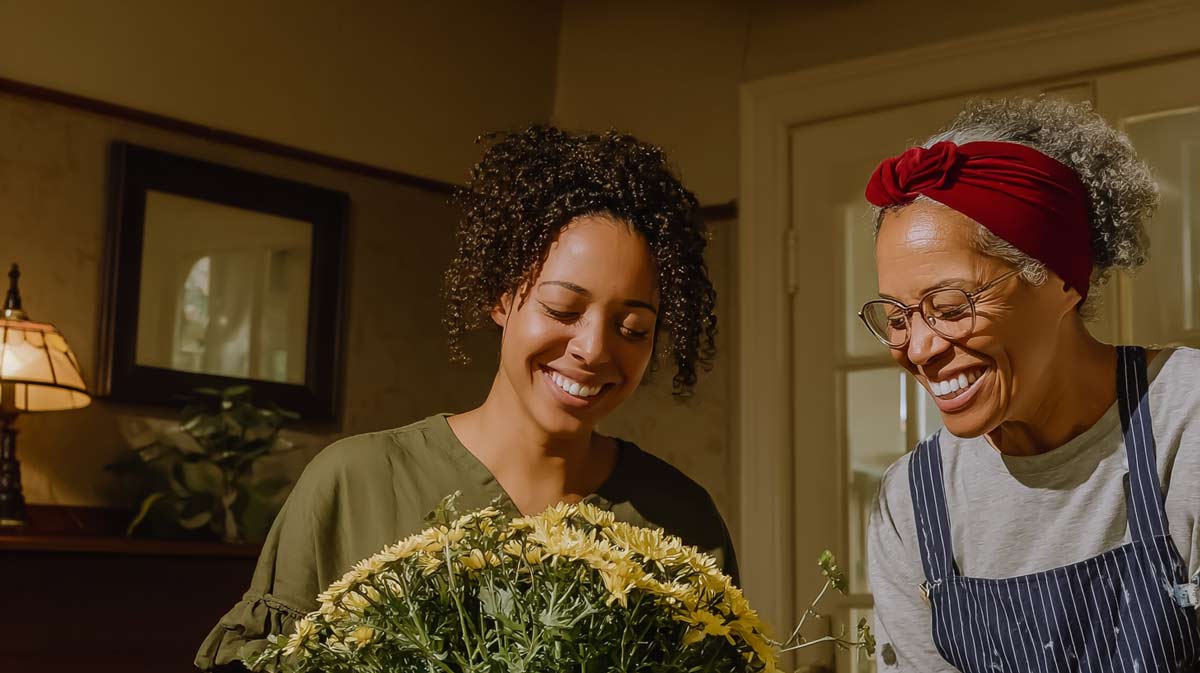Recognizing the Signs of Needing Extra Help
Difficulty with Routine Tasks
Many individuals begin to notice a need for extra help when routine tasks become challenging. Signs include difficulty with cooking, cleaning, or remembering appointments. These daily activities, once second nature, can become burdensome, leading to frustration and a decline in quality of life. If you or a loved one are facing these challenges, it might be time to consider companion care. This type of support can make daily life easier by providing assistance with tasks that have become overwhelming.
Changes in Physical Abilities
Physical changes can also signal the need for additional support. If mobility is becoming limited, or if there are frequent falls or balance issues, personal care might be necessary. Personal care provides hands-on assistance with activities such as bathing, dressing, and toileting. Recognizing these signs early can prevent injuries and promote a safer living environment, ensuring that individuals maintain their dignity and independence as much as possible.
Increasing Forgetfulness
Memory issues are another indicator of needing help. Forgetting to take medication, misplacing essential items, or becoming disoriented can be concerning. In these instances, both companion and personal care can be beneficial. Companion care offers reminders and organization, while personal care can provide direct supervision and intervention. Understanding these signs allows families to seek the appropriate help, ensuring safety and peace of mind.
Understanding Companion vs. Personal Care
Companion Care Overview
Companion care focuses on providing social interaction and assistance with non-medical tasks. It’s ideal for individuals who are mostly independent but require some support with daily activities. This might include help with household chores, meal preparation, or simply having someone to talk to. The goal of companion care is to enhance the individual’s quality of life by reducing isolation and offering support in daily routines.
Personal Care Defined
Personal care involves more hands-on assistance with activities of daily living (ADLs). This care is necessary when there are physical or cognitive limitations that require direct intervention. Personal care aides assist with bathing, grooming, dressing, and mobility, ensuring that individuals maintain personal hygiene and comfort. It’s a critical service for those who need more comprehensive support due to health or mobility challenges.
Choosing the Right Care
Deciding between companion and personal care depends on the individual’s specific needs. If the primary concern is loneliness or difficulty managing household tasks, companion care is suitable. However, if there are significant physical limitations or medical needs, personal care is more appropriate. Consulting with care professionals, like those at Love and Loveable Care, can help families make informed decisions tailored to their unique situations.
Assessing Daily Living Activities and Challenges
Evaluating Daily Tasks
Assessing the ability to perform daily living activities is crucial in determining the need for care. Consider tasks such as cooking, cleaning, and managing medications. If these activities are increasingly difficult, it may indicate that assistance is required. Companion care can provide invaluable support, helping individuals navigate their daily routines with ease and confidence.
Addressing Challenges in Mobility
Mobility challenges are a common reason for seeking personal care. Difficulty with walking, standing, or transferring from bed to chair can significantly impact daily life. Personal care aides offer the physical support necessary to manage these tasks safely. Assessing mobility issues ensures that individuals receive the appropriate level of care, reducing the risk of injury and enhancing independence.
Cognitive and Memory Considerations
Cognitive and memory challenges can also affect daily living activities. Forgetfulness, disorientation, and confusion can make it difficult to complete routine tasks. Companion care provides reminders and organizational support, while personal care offers direct supervision and assistance. Evaluating cognitive abilities helps families determine the best course of action, ensuring that loved ones receive the care they need to thrive.
Evaluating Emotional and Social Support Needs
Importance of Social Interaction
Social interaction is vital for mental and emotional well-being. Loneliness and isolation can lead to depression and anxiety, especially in older adults. Companion care offers regular social engagement, providing conversation, companionship, and a sense of connection. This support is essential for individuals who live alone or have limited social networks, enhancing their overall quality of life.
Emotional Support and Well-being
Emotional support is another critical aspect of care. Stress, grief, or anxiety can affect anyone, regardless of age. Having someone to talk to, who understands and listens, can make a significant difference. Companion caregivers offer emotional support, being there to listen and provide comfort. This aspect of care helps individuals cope with life’s challenges, promoting mental and emotional health.
Assessing Social Support Needs
Evaluating social support needs involves understanding the individual’s social network and emotional well-being. If there are signs of withdrawal or loneliness, it may be time to consider companion care. These services offer the emotional and social interaction necessary for a fulfilling life. By assessing these needs, families can ensure that their loved ones have the support required to live happily and healthily.
Considering Health and Safety Concerns at Home
Identifying Safety Risks
Home safety is a primary concern for individuals considering care. Identifying risks such as fall hazards, inadequate lighting, or cluttered pathways is essential. Personal care aides can help mitigate these risks by ensuring the home environment is safe and accessible. Addressing safety concerns early on can prevent accidents and provide peace of mind for individuals and their families.
Health Monitoring Needs
Regular health monitoring is crucial, especially for those with medical conditions. Personal care aides can assist with medication management, monitor vital signs, and provide reminders for medical appointments. This level of care ensures that health needs are consistently met, reducing the risk of complications and promoting overall well-being.
Emergency Preparedness
Being prepared for emergencies is another critical aspect of home safety. Personal care services often include emergency response planning, ensuring that individuals know what to do in case of an emergency. This preparedness includes having emergency contacts readily available and understanding how to reach help quickly. Taking these precautions helps individuals feel safer and more secure in their homes.
Planning for Care: Timing and Options Available
Timing for Care
Deciding when to seek care involves evaluating current challenges and anticipating future needs. It’s important to consider how difficulties with daily tasks, mobility, or health issues may progress over time. Early intervention with companion or personal care can prevent more significant problems and enhance quality of life. Consulting with professionals, like those at Love and Loveable Care, can help families plan effectively.
Exploring Care Options
There are various care options available, tailored to meet specific needs. Whether you require part-time companion care or full-time personal care, services can be customized to fit individual requirements. Home care providers like Love and Loveable Care offer a range of services, including home nursing and APD Waiver support, ensuring that you or your loved one receive the right level of care.
Making the Right Decision
Choosing the right care option is a personal decision that should involve input from the individual, family, and care professionals. Open communication and thorough assessment of needs and preferences are key. Love and Loveable Care is committed to providing individualized home nursing care that respects dignity and promotes independence. Our team is here to support you in making informed choices, offering trusted care and peace of mind.
At Love and Loveable Care, we understand the importance of finding the right balance between independence and support. As a leading in-home care provider in Central Florida, we offer personalized services that cater to the unique needs of seniors and individuals with disabilities. Whether you need companion care, personal care, or specialized nursing, our compassionate team is here to help. Finding care should be simple and reassuring, and you’re in the right place. Reach out to our Home Care Services team today and let us guide you and your loved ones toward a more secure and fulfilling life.





0 Comments